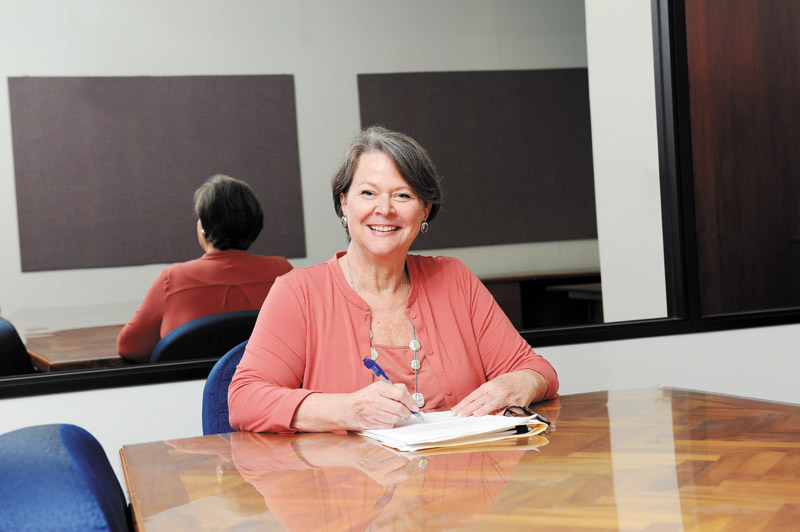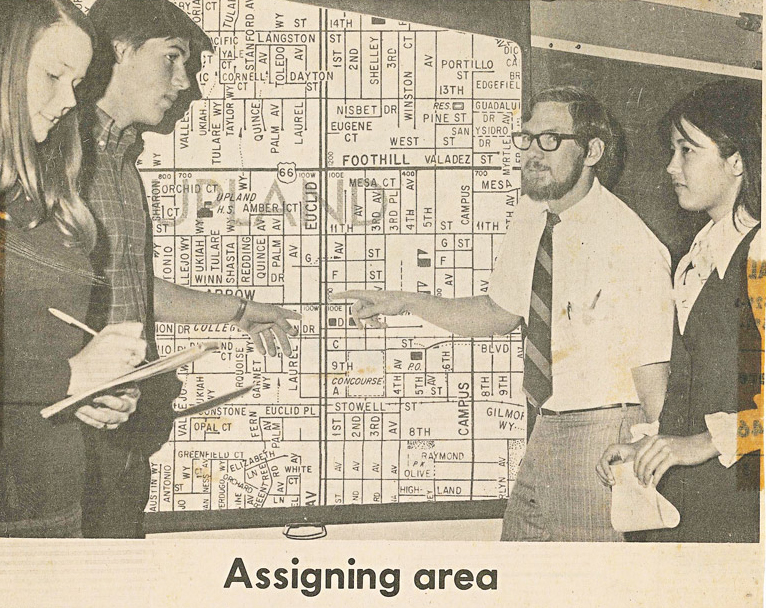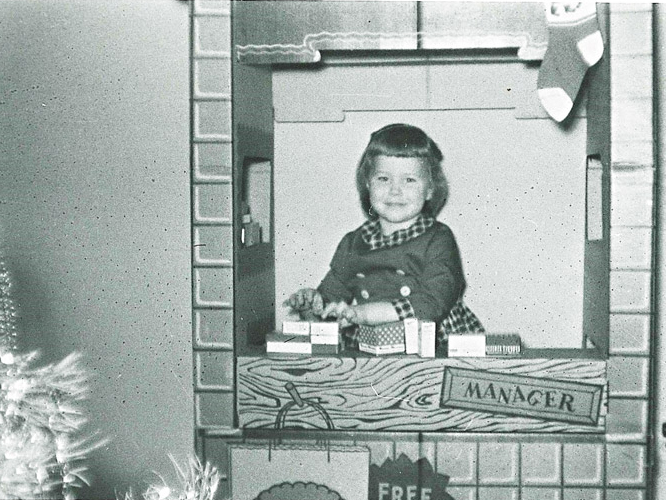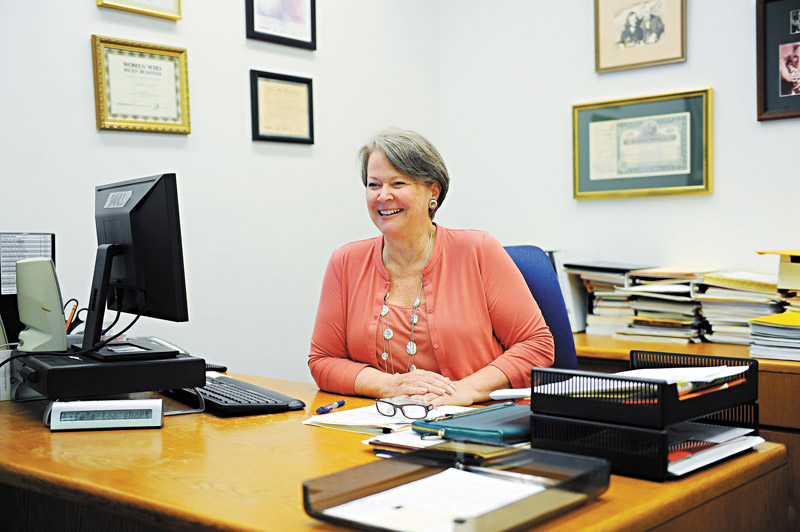The Art And Science of Polling

Becki Ward always sits at the head of the table while leading focus groups. Behind her is a two-way mirror
Becki Ward began preparations for the pre-primary election Hawaii Poll with a meeting at the Honolulu Star-Advertiser. The Honolulu daily and television’s Hawaii News Now co-sponsor the statewide survey of 400-plus voters (with a margin of error of 4.9 percent, that is).
So those who pay for it get their say in what goes into it: Star-Advertiser editor Frank Bridgewater, managing editor Ed Lynch and columnist Richard Borreca joined HNN news director Mark Platte and assistant news director Daryl Huff in putting together the survey.
The discussion dealt with topic areas for the poll, questions that needed to be asked regarding rail transit, building the super-observatory on Mauna Kea, progress on housing the homeless, and more. Then there were, of course, the template questions, including: “If the election were held today, which of the following candidates would you vote for?”
Ward led the discussion, took notes and a few days later submitted a draft 20-question survey to Bridgewater, Borreca, Lynch, Platte and Huff. They tweaked it here and there and then signed off. Twenty questions, posed to more than 400 randomly selected Hawaii voters, each survey taking no more than 15 minutes tops.
“The Honolulu Star-Advertiser has worked with Becki on polls for a number of years, and has appreciated her meticulous approach to gathering data, parsing it and presenting it, ” says Bridgewater. “Polling in Hawaii is very difficult, in large part because of the complex makeup of Hawaii residents, but Becki constantly tweaks her models to account for shifts in our polling universe. The result is that the Star-Advertiser is able to provide our readers with credible reports about the public’s opinions.”

Ward got a start in polling in high school, and showed a knack for business even earlier. PHOTOS FROM BECKI WARD
Says Platte, who’s worked with Ward in compiling and publishing the Hawaii Poll for the past 16 years: “Becki is very clear-headed, professional and easy to work with. She lets us conclude what we want to ask, but she provides help in coming up with more nuanced questions. She’ll go wherever we want to go. She makes it really easy.”
On the Thursday before the July 4 weekend, Ward Research staffers and some of the 28 part-timers who work fourto eight-hour shifts on a major survey, arrived at Ward Research’s Fort Street Mall call center, sat down at their phones and began placing calls.
“The technological revolution has made polling more difficult every year,” says Ward. “Finding a live respondent means dialing and getting an answering machine or call-forwarding, rather than a voter.
“Then there’s the problem of cell phones. The area code prefix once told us where the person lived. That’s not the case anymore. And you have to call cell phones, because the land-line phone book has shrunk. Our surveys now run 70-80 percent cell phones, 20-30 percent landlines. A few years ago, those percentages would have been reversed.
“It now requires an hour of calling to get a survey filled. So we’ll work 12-plus evenings and Saturdays to complete a poll of 450 voters.”
They did for the pre-primary poll, then Ward interpreted the results, and on July 17 the Star-Advertiser and Hawaii News Now began reporting the results: 39 percent of respondents liked former U.S. Rep. and City Councilman Charles Djou for mayor, 30 percent liked incumbent Kirk Caldwell, 15 liked former mayor Peter Carlisle. Some 26 percent felt the homeless problem had improved over a year ago. And 62 percent said that rail should be built to Ala Moana, only 10 percent that it should stop at Middle Street, and 25 percent want it stopped now, immediately, an hour ago if possible.
And so on, and so on, and so on: 20 questions worth of data for readers, watchers, policymakers and candidates to absorb. Ward closes her book on Hawaii Poll, pre-edition, but come September she’ll re-convene her Honolulu Star-Advertiser and Hawaii News Now advisers to put together Hawaii Poll’s general election survey.
Becki Ward did not set out to be a political pollster, and certainly not one in far-off Hawaii nei. Her roots are in the Great Midwest and the Inland Empire of Southern California. She was born in Indianapolis, the eldest of three children of Jay Dee and LaVonne Ward. The Ward family moved to the small Southern California town of Upland in 1959.
“I had a great upbringing,” Ward says, “middle class, Mid-American. We weren’t exactly the Cleavers, but close.”
She remembers herself as a B+/Astudent in high school: “I could do that without doing much school work. My social life was always important to me.”
Ward attended Chaffey College, a public community college in nearby Rancho Cucumonga. “I took a couple of business classes, but it wasn’t my aim in life to own a business. In 1971, nobody went to business school. It was politically incorrect.”
While attending Chaffey, Ward worked full time in the print room of an engineering firm. But she was laid off from the job and her relationship with a boyfriend broke up.
She sought solace in a Hawaii vacation. Two months into what had been planned as a two-month stay, Ward informed her parents that she intended to stay longer. A temporary employment service found her a job with a methadone clinic.
“On my first day on the job, a client came in with a gun,” she recalls. “I guess I showed a cool head, so they offered me a full-time job.”
Their eldest daughter 2,500 miles away and working in a methadone maintenance clinic where clients sometimes showed up packing heat unnerved her parents. They demanded she go back to school and find a better and safer job. Daughter Becki enrolled in University of Hawaii’s business school.
“I was taking Marketing 301 from John Brink, a lecturer whose full-time job was with Fawcett McDermott Cavanaugh,” Ward remembers. One night he brought in Jerry Murphy, the managing director of Fawcett’s research division, as a guest lecturer. He wrote on the white board that his company was looking for a secretary. I called the next day and got the job. I was 22 years old.”
She didn’t last long as a secretary. At 23 she became the company’s field director, overseeing data collection. She also learned how to do focus groups, the lifeblood of any research department.
One of her first was with teenagers talking about what they liked and didn’t like about Zippy’s.
“No focus group should have more than eight to 10 adults,” says Ward. “Fifteen teenagers was impossible.”
Ward left Fawcett for John DeMello’s Mountain Apple Company in 1980. The job didn’t last.
“After the holidays, business slowed and I was let go,” she recalls. “So I asked myself, what can I do? The answer kept coming back ‘market research.’ That’s when I started doing interviews as an independent contractor.”
Market research in Hawaii became a growth industry in the early 1980s. Middle managers were coming in from the Mainland expecting more data than Island companies had at their disposal.
Those expectations spelled opportunity for Jim Dannemiller and Hersh Singer at SMS Research, Pat Loui at Omnitrak, Barbara Ankersmit and Barbara Sunderland at Hawaii Opinion Polling — and Ward.
“All of us remain in business today,” says Ward. “Their companies have gone through various permutations, but all continue in business.”
Ward’s break came when friend Sharon Weiner at Stryker Weiner Public Relations recommended her for a corporate image study for Amfac.
“I had to submit a proposal, come up with a sample size, show an understanding of the issues involved and set a price for the work. I had no template for a study that large. Nor did I know how to price it. I was only 25 years old.”
Youth triumphed. Ward did her interviews, submitted her report and Amfac president Henry Walker asked her to fly to San Francisco to present it to Amfac’s board of directors. “I prepared a slide presentation,” Ward recalls, “but I was very nervous. My voice quivered. Still, Mr. Walker pronounced it ‘a great job for a young woman.’ That was my springboard.”
Ward Research took off. Clients such as Bank of Hawaii, Aloha Airlines, The Queen’s Medical Center, Hawaiian Electric and a host of other well-known Hawaii companies soon followed.
As a young woman and a maturing business owner, Ward denies ever experiencing sexism.
“Oh, a teller at a local bank branch once asked me whether the Ward Research check I presented was from my husband’s company. But, no, I found a place where I was respected and the male-female thing didn’t play a role.”
Market research paid the bills and more, but Ward found herself drawn to politics.
“Some polling gets your juices going more than others,” she admits.
In the late 1980s, she did her first political poll, for Patsy Mink in her campaign to return to Congress. How did she get the job? The old-fashioned way: “I wrote her a letter.”
Subsequently, she worked for former Maui Mayor Elmer Cravalho when he attempted to return to the mayoralty. Says Ward, “I had to tell him the polling showed he was going to lose to Linda Lingle.”
In April of 1990, U.S. Sen. Spark Matsunaga died. Gov. John Waihee appointed state Rep. Dan Akaka to fill the office until the next biennial election, in November of that year. Hawaii’s Republicans smelled opportunity in the Senate candidacy of U.S. Rep. Pat Saiki.
SMS Research did the Hawaii Poll in 1990, and their surveys said Saiki would win.
At KGMB-TV, then-news director Terry Heaton asked, “Doesn’t anyone do exit polling around here?” No one had previously, so Heaton hired Ward Research to do one. She identified 23 precincts statewide and stationed interviewers outside their polling places, asking voters as they emerged who they’d voted for.
“All day long, we found Akaka leading,” Ward recalls. “At 6 p.m., when the polls closed, Heaton asked whether we were comfortable with our polling. We were, and a few minutes later, Bob Jones announced on air that Akaka had won. Our poll numbers were just a half point off the final vote tally.
“The whole operation was a logistical nightmare: faxing, air-freighting, rating data entry equipment. It consumed every resource in the company. If we’d been wrong, it could have ruined my career.”
It was, as all good — as in accurate — polls are, “a combination of science and art.”
In 1997, Ward Research took over the Hawaii Poll. It hasn’t always been easy. And because it’s done for the media, the Hawaii Poll precludes Ward Research from polling for candidates.
Says HNN news director Platte: “I’m sure Becki gives up a lot of outside polling work in order to do the Hawaii Poll, but she takes it because it’s prestigious and she’s proud of her work.”
“In 2012, with an open seat, there were contested races way down the ballot, but we were conflicted out of doing any of them,” Ward laments.
That said, the 2012 Hawaii Poll brought Ward measures of both grief and triumph. Her polling showed former Gov. Linda Lingle losing the open U.S. seat to former Lt. Gov. Mazie Hirono.
“Lingle people were brutal,” Ward recalls. “They didn’t like our data. It showed Lingle losing to Hirono by 22 percentage points. They argued that their Mainland poll was more professional. It had Lingle behind by only 4 points.” Lingle lost by 26.
“I sighed with relief — I’d taken so many hits from the Lingle campaign,” Ward says.
Polling for the media may not “get the juices flowing” as quickly as being associated with candidates in hotly contested campaigns, but it has its advantages.
“Not being associated with a candidate allows me to look at the data as objectively as possible,” says Ward. “I can say things other people are thinking, and bring what I’ve learned from interviewing people in the community for 40 years.”
She also can point out hard truths.
“Two years prior to the 2014 gubernatorial campaign, we saw and reported Neil Abercrombie’s approval ratings falling rapidly,” Ward says. “In the 2014 pre-primary poll, David Ige was up by 18 points.
Someone asked me if there was any chance the governor could still win. I told them the signs had been there for a long time and that nothing could stop this train wreck.
“That’s my role.”
HNN’s Platte again: “She doesn’t show any bias. She’s meticulous about her work, ethical, smart and she knows the issues of the day. Her polling’s the gold standard. Besides, she’s a good lady, a classy lady and a community leader.”
Ward’s community service has been long and varied, including the board of directors of the Girl Scouts, Goodwill and Chamber of Commerce. And earlier this year she assumed perhaps the most important leadership role of her life.
In 1995, her husband of 23 years, Bob Lee, was diagnosed with stage four prostate cancer.
“It was already in his bones,” says Ward. “Only one in five survives for five years. Bob lived for 11, during eight or nine of which he was in pretty good shape.”
Lee died in 2006. Ward was asked to serve on the American Cancer Society of Hawaii Pacific board.
“I couldn’t do it, couldn’t think about it, without a great flood of emotion,” she admits.
But in 2010 she joined the ACS board. In January of this year, she agreed to become its chairwoman.
This fall she will see the cancer society open Clarence T.C. Ching Hope Lodge Hawaii, a $15 million facility off Queen Emma Street. It will provide free lodging to any cancer patient who comes to Honolulu for treatment, with preference given to patients from the Neighbor Islands and Guam.
“I remember driving Bob to Honolulu from Kaneohe for radiation,” says Ward. “It was terrible. He had no appetite. He suffered from nausea.
He was in pain.”
Fellow cancer board member Roz Baker describes Ward as a “real champion in reaching out others in the community to raise funds for Hope Lodge. She’s passionate about the cause. She builds consensus among people, and is proving to be a very involved chair.”
A classy lady indeed.







